Second necessity goods
photos by Nuno Milagre
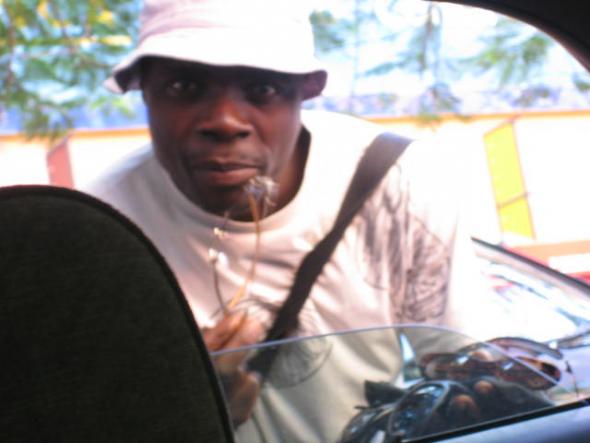
There’s no work, there’s no money, there is nothing to do, and still you need to take some money home; to feed the kids, the parents, the grandson, the grandmother, or the whole family. In the African metropolis, lack of social protection and jobs rule. Unemployment isn’t read in statistics, it’s seen on the streets. Everywhere, the unemployed stroll around chatting, ramble along the sidewalks, search for a tailor-made way out cut to their own measure.
One solution is trying to sell something. However, when you don’t own a store, why not go directly to the clients? That’s what the traffic light sellers do. They gather at the junctions and approach the stationary drivers trying to sell their merchandise. Triple sockets, windshield wipers, ropes, pegs, school notebooks, ashtrays, bibelots, cigarettes, measuring tapes, batteries, tooth paste, fans, soaps, ties, sunglasses. There is a bit of everything at strategic points where cars accumulate and drivers and passengers are available to be convinced to take something home. In cities such as Dar-es-Salaam, Luanda, Abidjan, Lagos – and so many others – the traffic jams increase every day and the traffic light sellers try their luck with their varied utilitarian objects, things that you really need or which can suddenly be handy tomorrow.
The traffic light sellers are self-sufficient. It is an agile and small business, each one carrying their own merchandise, turning oneself into an exhibitor with mobility between cars. Informal work with a light structure, they sell objects easy to carry in quantity and variety. Anything goes: office, kitchen, decoration or hygiene goods. Scissors, fruit of the season, electrical extensions, bag packs, colour pencils, cakes, chewing gums, kitchen cloths, alarm clocks, emergency warning triangles for the car, pens, perfumes.
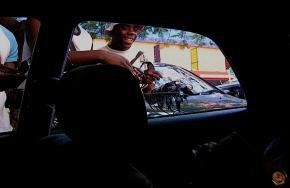
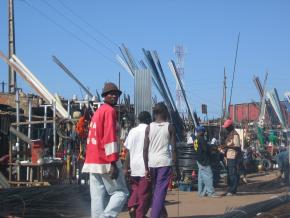
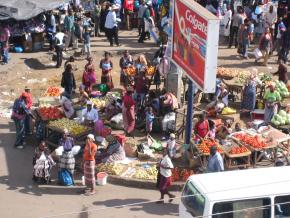 They seem entrepreneurial youth and adults, but most of them work for a third-party. An invisible boss will have a warehouse full of articles made in China or close by, leaving under consignation. The traffic light seller’s profit is small, or non-existent, if they sell nothing. The attention of the NGOs doesn’t reach these intersections; only their jeeps pass through, spreading the CO2, but not the micro-credit to allow these vendors to invest and sell on their own.
They seem entrepreneurial youth and adults, but most of them work for a third-party. An invisible boss will have a warehouse full of articles made in China or close by, leaving under consignation. The traffic light seller’s profit is small, or non-existent, if they sell nothing. The attention of the NGOs doesn’t reach these intersections; only their jeeps pass through, spreading the CO2, but not the micro-credit to allow these vendors to invest and sell on their own.
Some boys seem too young to be selling on the street, they should be in school or playing, and others seem already too old for such a precarious profession. Selling, or trying to sell to those reducing speed in the traffic, who so often close the window or drive out the vendors, is a workaround solution for those who cannot find another way of getting money to take home. It isn’t a prestigious job, but it’s an honest way of life at the limit of informality and precarity.
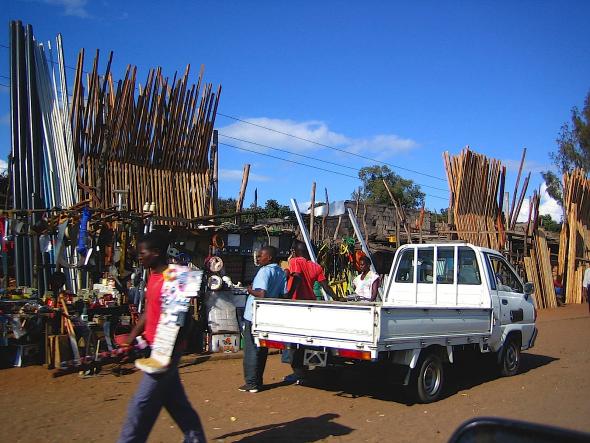
From Cape to Cairo
Each and every day the sellers will return to their crossroad, to their intersection, agitating and promoting their convenience articles, second necessity goods, things which are handy or might become so tomorrow: pouches for portable phones, ‘No Smoking’ or ‘W.C.’ stickers, watches, combs, ladles, lockers, flowers, clothes hangers, cotton buds, peanuts, kitchen bolts, lighters.
This we call the informal market: no papers, no commercial store; there are neither receipts nor guaranties, there’s neither balcony nor wrapping paper.
All Africa is an informal market, from Cape to Cairo, from Maputo to Marrakesh, whether in the markets, at the traffic lights, on the sidewalks, in bus stations, by any wall or on any piece of ground where products can be exposed. However, if the informal market is characterised by the absence of registers and invisibility, we will also find it away from the burning sun and the road dust, in the ministerial cabinets, in black cars with smoked windows, in hotel bars. Also in these environments, acclimatized by the air conditioner, a lot of informal business is done: profits from petrol missing in the public accounts and which informally dissolve; influence peddling; commissions of ten, twenty, thirty per cent over adjudications of public works and businesses; turning confidential information profitable; arms and diamonds trafficking.
At the end of the day, these kids who sell to the drivers stopped at traffic lights and intersections are teetering on the edge of the same laws as the sharks in power and business; simply, the kids spend the whole day chasing after some pocket money, the others bag millions in between handshakes and shameless laughter. All of them under the same informality.
All Africa is an informal market, from Cape to Cairo, from Maputo to Marrakesh. And everything can be found; no VAT, no paperwork and sometimes even without having to leave the car. Briberies, embezzlements, speculation, benefits, manipulation, corruption. Things which are really handy, or might suddenly become so tomorrow.
Originally published in Fugas’ magazine for the newspaper Público, in October 2008
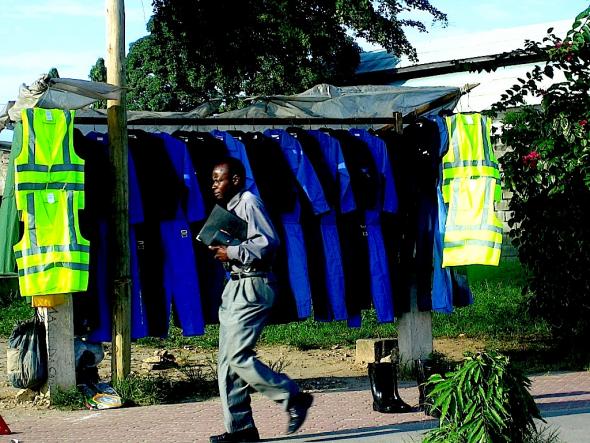
Publicado na revista Fugas do jornal Público em Outubro de 2008